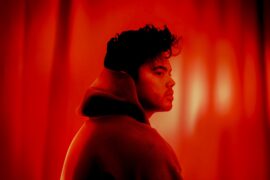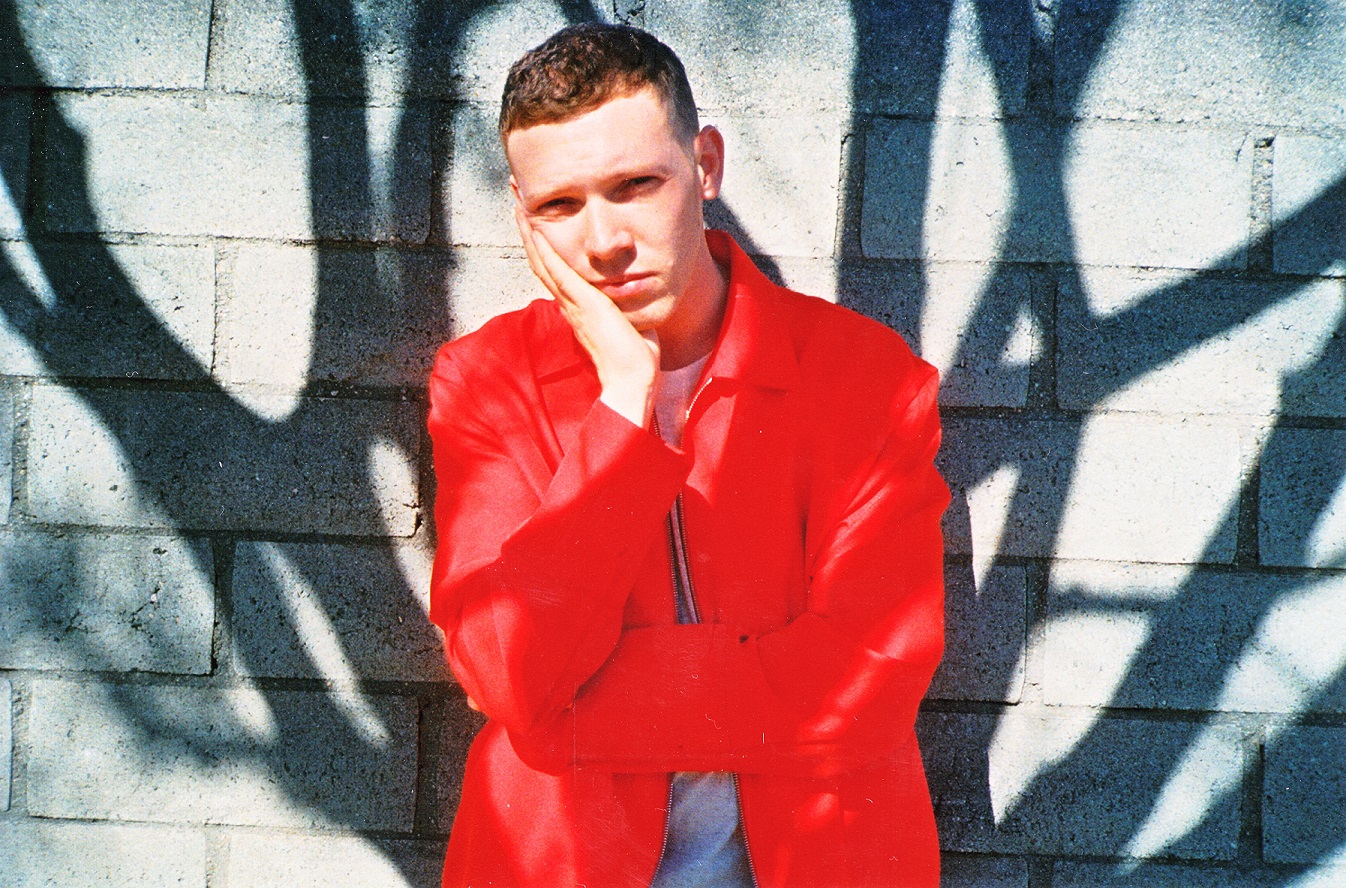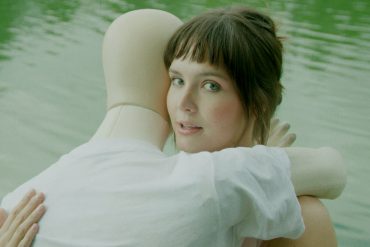Canadian singer/songwriter Skinny Dyck takes us track-by-track through his aptly titled second album ‘Easygoing,’ a gentle and dreamy blanket of soothing, seductive musical warmth and wonder.
for fans of The War on Drugs, The Eagles, Jackson Browne, Traveling Wilburys
“Can’t Change the Colour of Your Eyes” – Skinny Dyck
By his own admission, Skinny Dyck makes a special kind of “country, but not country” music.
Some might call him an ‘indie folk artist,’ others an ‘alt-Americana troubadour,’ and in truth, the shoes all fit well; genre labels on their own are a veneer, and far less important than how the songs actually make a listener feel inside. Thankfully, Dyck has that covered for us, too – he even went so far as to make it the name of his sophomore album, so that everyone meeting him for the first (or second) time knows exactly what they’re in for when they press ‘play.’ A truly tender tempest, the aptly titled Easygoing is gentle, soft, and dreamy: A radiant, relaxing reverie that comforts the ears and soothes the soul as Skinny Dyck wraps his audience in a blanket of musical warmth.
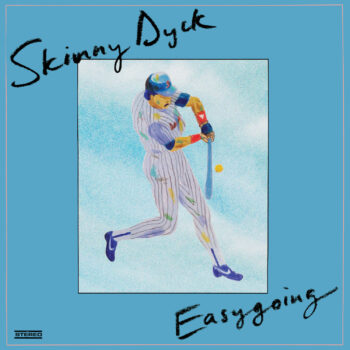
Found myself in a circus crowd
In the favour of the afternoon
Saw you say it not out loud
I don’t know you like i used to
You can take a deal with yourself
It’s right in front of you
You can find a hook, lose the hat
Say that you didn’t if you do
You can’t change the
colour of your eyes
No you can’t change the
colour of your eyes
Released October 25, 2024 via Toronto-based indie label Victory Pool Records, Easygoing is forty minutes of hazy, sun-soaked sonic and lyrical wonder. Arriving four years after his debut album Get to Know Lonesome, Skinny Dyck’s sophomore record offers a charming reintroduction to Western Canada’s Ryan Dyck and his colorfully-titled artist project.
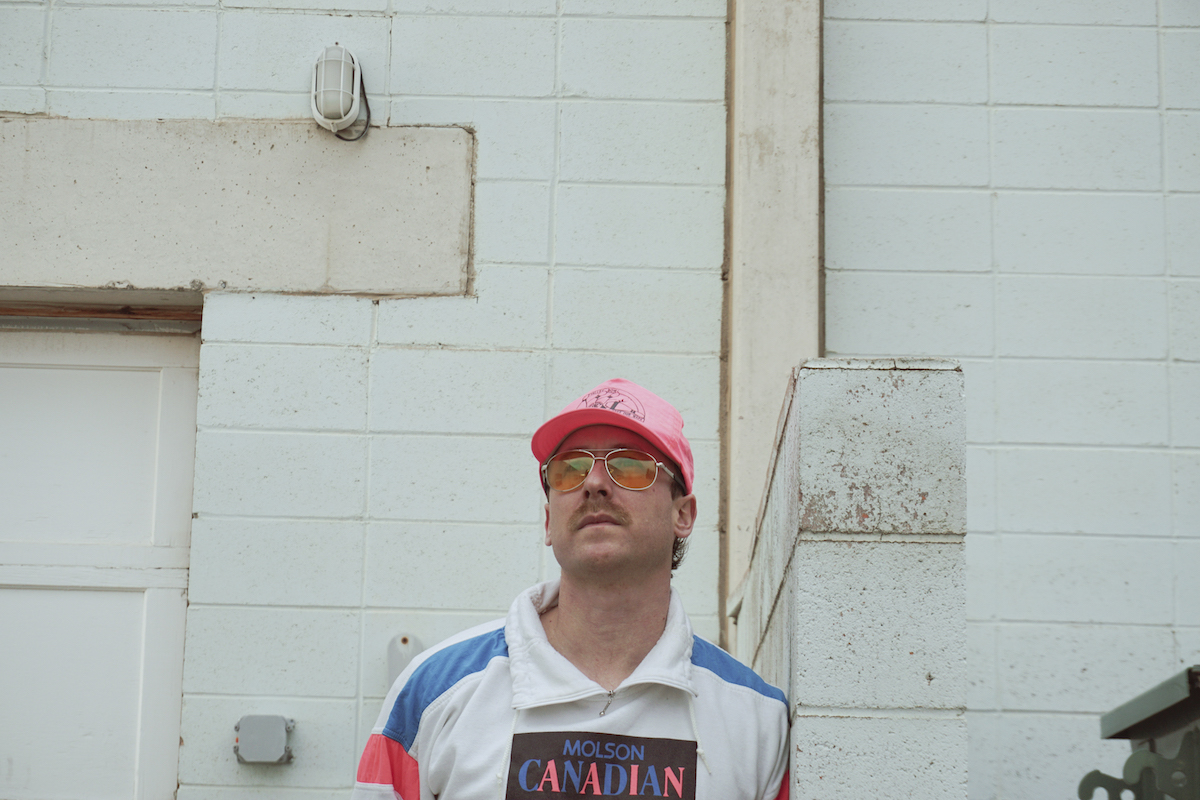
“I think for fans of that first record, there’s enough common ground on Easygoing to keep the listener engaged, and certainly a few songs that could almost fit on either record,” Dyck tells Atwood Magazine. “Get to Know Lonesome is fairly on the nose traditional country, but has enough vibe that I think it attracted indie music fans too. That same ethos is preserved on Easygoing – yeah, we used some nicer gear and stuff, and Mark Nevers mixed it, but it feels like a natural progression. You know, from the living room (GTKL) to the basement (Easygoing) or something like that.”
As Dyck intimated, one of the biggest changes between his first and second rodeos involves the personnel involved; celebrated mix engineer Mark Nevers (Bonnie “Prince” Billy, Silver Jews, Calexico, Andrew Bird) collaborated with him to bring these twelve new songs to life, making use of vintage analog gear to give the tracks that spectacular depth and palpable heat that helps make every moment on Easygoing both intimate and irresistibly cinematic. Think The War on Drugs meets The Eagles – a mix of the old with the new makes for a peaceful, easy, and altogether dreamy listening experience.
Moses and Abraham on the beach
Walking around with sand in their feet
You’re on the phone and it sounds intense
If I go downstairs will there be less stress?
Isaac has a brother, a sister too
Somebody killed them now they’re gone
You’re on the phone and a thousand steps
If I go outside will there be less stress?
By design and by desire (to feel a closeness)
Given onto by right (to have a kinship)
At the third stop on the train (try to come in quiet)
Try to come in quiet
The other big difference, Dyck explains, is quite literally how the album itself was made – slowly, steadily, and over nearly a year. This ‘easygoing’ approach gave the songs themselves time to breath, time to be tinkered with, and time to come into their own natural skin. “This record was pieced together over multiple sessions spanning about 10 months. We did bed tracks a few times over weekend sessions in Edmonton with my friend Aladean Kheroufi, and then I did the bulk of the vocals and guitars at home in Lethbridge and with help from others recording remotely,” Dyck explains.
“It was fun to work at things this way – being a chip away approach as opposed to one weeklong studio session or something. It allowed for more reflection on the songs and what they needed – perhaps too much in some cases, which is a natural product of having too much time to mull things over – but mostly not, I think. I was fairly absorbed in learning how to half-assedly record myself. I’ve always leaned on others to record my stuff, but learning some basic recording stuff on my own was really eye-opening, and finally came a realization of how much of the sound is crafted by the initial ideas and capture.”
As for his creative vision, “I wanted to move a bit away from some of the more traditional songwriting forms that I’ve gotten comfortable using,” he adds. “There was also a desire to introduce new instrumentation and other elements that I’ve grown interested in over the past few years – whether a high-dollar jazz chord voicing here or a weird pitch-dropped vocal thing there – try to keep it interesting for both me and the people.”
To that end, Dyck affectionally describes his new album as “second negroni country” or “twangy park bench” (or “adventurous americana songtime,” to get really colorful) – all of which faithfully express this ‘not-a-country’-country album vibe that he so effortlessly exudes.
Meanwhile, the album’s title is in many ways his (and his music’s) mission statement. “Easygoing is a mantra in the sense that it’s something I endeavour to be, but certainly not the way I always am: A necessary ease up for survival purposes – everything in stride, a few extra breaths and hopefully some personal growth.”
Easygoing is an enchanting, exhilarating, and undeniably smile-inducing adventure from start to finish – a rapturous ride that begins on a high with the album’s titular opening track: The breezy “Easygoing” sets the tone for all that’s come with its sun-kissed guitar tones, intimate, vivid lyrics, and its heartfelt delivery. “Sometimes I can see past my own reflection and into the childhood moments that made me who I am,” Dyck says of “Easygoing.” “Most other times I see my own face and before I start to cry, I remind myself that life is beautiful and easy – even when it’s not. In fact, without every hardship life would be decidedly too easy, I guess. My Dad is always on about the Sweetgrass Hills in northern Montana – hope to do a hike with him someday soon.”
Height of a rail bridge,
the Sweetgrass Hills,
open up the eyes, easygoing
Lap of the riverbed,
thoughts running through my head,
get up for breakfast, easygoing
Made it out to Eastend,
told to get some stress rest,
I think I fell in love then, easygoing
If I could see it then how I do now
If I could see it then how I do now
It’d be too easy, easygoing
– “Easygoing,” Skinny Dyck
While other album singles like “Can’t Change the Colour of Your Eyes,” “Less Stress,” and “Out of Control” helped round out Easygoing’s character ahead of its release (all three of these songs are achingly beautiful in their own way, and deserve audiences’ undivided attention), Easygoing is, at the end of the day, a no-skips affair full of highs and lows, fasts and slows – songs that move the ears, the head, and the heart in turn.
“I really like how ‘Baby Oh Well’ turned out – the interplay of the steel and lead guitar in that sort of classic country trading style is nice,” Dyck says on the topic of favorites. “The lead guitar work on ‘One Extra Smile’ is beautiful (thanks to Austin Parachoniak) and does what I wanted to do – a song as a token for my Dad and posterity.”
When it comes to his favorite lyrics, he offers a few highlights. “I give a nod to Warren Zevon in ‘Baby Oh Well’ – ‘You stole a lot of money baby, said to meet you in a day, you need a truck now don’t you honey, just to give it all away.’ I like the reflection evoked by this one in ‘Part of Me’ – ‘Part of me would look back now and wonder what I was thinking, if a glance back at myself could hold me down, make me listen. How do I get that now, a feeling, I could always chase down.’ And the sort of ungrounded openness of this one in ‘Can’t Change the Colour of Your Eyes.’ My close friend Michael Granzow writes with me a lot and credit due to him on this one: ‘Found myself in a circus crowd, in the favour of the afternoon.’”
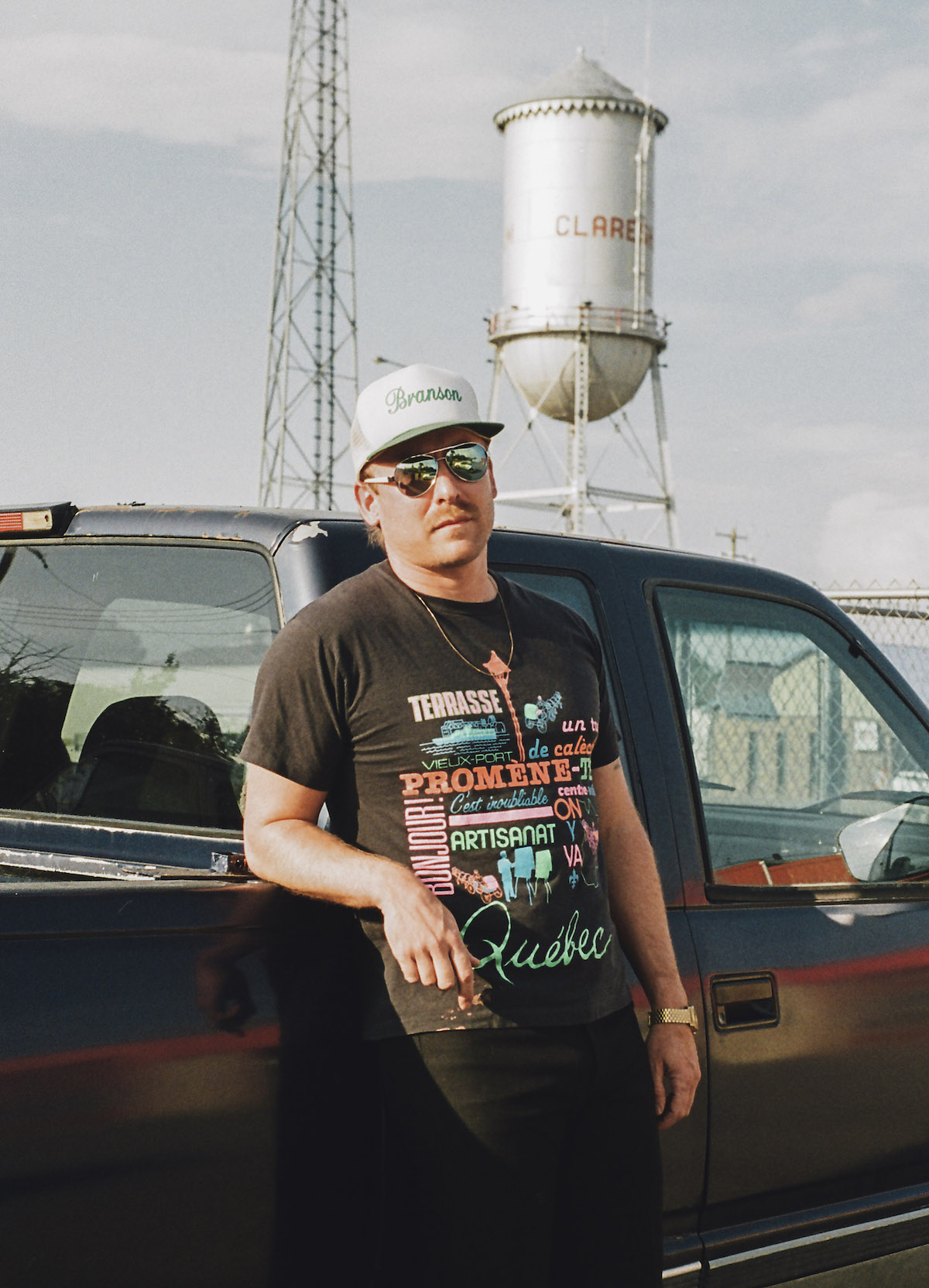
As endlessly amusing as the name ‘Skinny Dyck’ may be – and it is, unequivocally, enjoyable – the artist’s second album is an equally sincere, soul-stirring delight.
Light shines throughout Easygoing’s runtime as Dyck serenades us with spirited stories of his own comings and goings; of humble hearts and weary souls making a go of it, pursuing their hopes and dreams and trying to make the most of every day. Ultimately, what more could we possibly ask for? You may smile; you may cry; but you will certainly come away from this release eager for more Skinny Dyck.
“I find there to be enough variation in the themes and styles that it might keep a listener interested through the course of the batch,” Dyck shares. “But if there’s one thing to take away I think it’s the notion of ‘country, but not country’ that plays out over a range of emotional song fodder with some interesting musical moves – something familiar with something new.”
“The biggest thing I’ll take away is that I can probably make a record all on my own in the future – though we’ll see if it happens that way.”
Experience the full record via our below stream, and peek inside Skinny Dyck’s Easygoing with Atwood Magazine as the singer/songwriter takes us track-by-track through the music and lyrics of his sophomore album!
— —
:: stream/purchase Easygoing here ::
:: connect with Skinny Dyck here ::
— —
Stream: ‘Easygoing’ – Skinny Dyck
:: Inside Easygoing ::
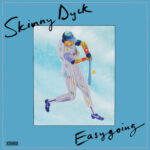
— —
Easygoing
Sometimes I can see past my own reflection and into the childhood moments that made me who I am. Most other times I see my own face and before I start to cry I remind myself that life is beautiful and easy – even when it’s not. In fact without every hardship life would be decidedly too easy, I guess. My Dad is always on about the Sweetgrass Hills in northern Montana – hope to do a hike with him someday soon.
Baby Oh Well
It’s got that 2-beat feel, like an old Merle Haggard song. I told Austin Parachoniak (guitar player) to go for a Clint Strong type country jazz thing and I tried to complement it with the steel. A bit of a Bonnie & Clyde type tale I suppose.
Part of Me
There’re two sides to us all no? I feel like Russia sometimes – part European and part Asian. Just kidding but this song does try to represent the two sides of the self and how they intersect. Aladean Kheroufi’s simple piano part really stands out for me.
Lean In
I walked into a record store in my hometown one day and there was no music playing. It felt odd sifting through the crates in silence. Tried to wrap that with the modern-day reality of having your taste fed to you – reviews, playlists and other facets of the digital economy that are built to tell you streamline things for you – meanwhile the experience of figuring it out yourself is a lost, and with it the little gems you might discover along the way.
Can’t Change the Colour of Your Eyes
I have this guitar that’s setup lower (in D) and I kept playing the hook line from the song on it. It sounds better lower – closer to the ground, harder to tip over. Lyrically it’s a look in the mirror, which for me at this time was a wet blanket of enlightenment reminding that there are things about yourself that you likely can’t change – natured and nurtured – like your eyes.
Where I’m Going
The mind is always marinating in its own uncertainty. Never fully made up, like how the recurring major7 chord feels a bit unresolved. Another one I recorded in the basement by myself (save for drums).
Nosedive
A quick retreat/indulgence into country rock territory, with subversive synth shimmers and a psychedelic spoken outro. I can’t help but visualize my own peril now and again, and the visceral feeling it brings about.
Less Stress
The drone feeling fingerpicked guitar and gang vocal were inspired by a Bill Callahan number. I think the lyrics are a blend of processing my own religious experiences in a playful way, married with the incessant pacing around the house that my wife does when on the phone. Psychedelic guitar burn out at the end courtesy of Austin Parachoniak.
I Don’t Drink
I paired a somber, janky instrumental with the dark, alcohol soaked musings of Jay Moeller (Texas drummer who played drums on the last album Palace Waiting) – stolen from a podcast interview Jay did. Jay’s honest take is reflected in his cadence. It’s the perfect set up for Out of Control.
Out Of Control
If I want to physically leave a place, my mind is usually already out the door – “can we please go, I left an hour ago”. Sometimes a relationship finds itself in a place where one person is holding on and the other is long gone. This song nods to that hard situation, where attempts to save what’s left push someone further away – in this case finding a new partner/old friend in the night life. Suddenly there’s so much to say, but it’s too late.
One Extra Smile
I adapted a story that my Dad used to tell us kids – Jack the best breaststroke, backstroke etc etc – it would change every night, though I didn’t realize it was just oral tradition at the time. A little bit of a smile through the pain type head nod. One extra smile a day – for posterity or something – cuz it’s hard to find the poetry in drowning.
And Then One Day
This one draws its inspiration from the dry communities in southern Alberta, a few of which have recently broke their century-plus prohibition. Long time songwriting collaborator Michael Granzow helped weld it together, like so many others on this album. Cameron O’Neil’s synth pad ebbs and flows like the drought licked creek beds of the region.
— —
:: stream/purchase Easygoing here ::
:: connect with Skinny Dyck here ::
— — — —

Connect to Skinny Dyck on
Facebook, Instagram
Discover new music on Atwood Magazine
© Heather Saitz
Easygoing
an album by Skinny Dyck

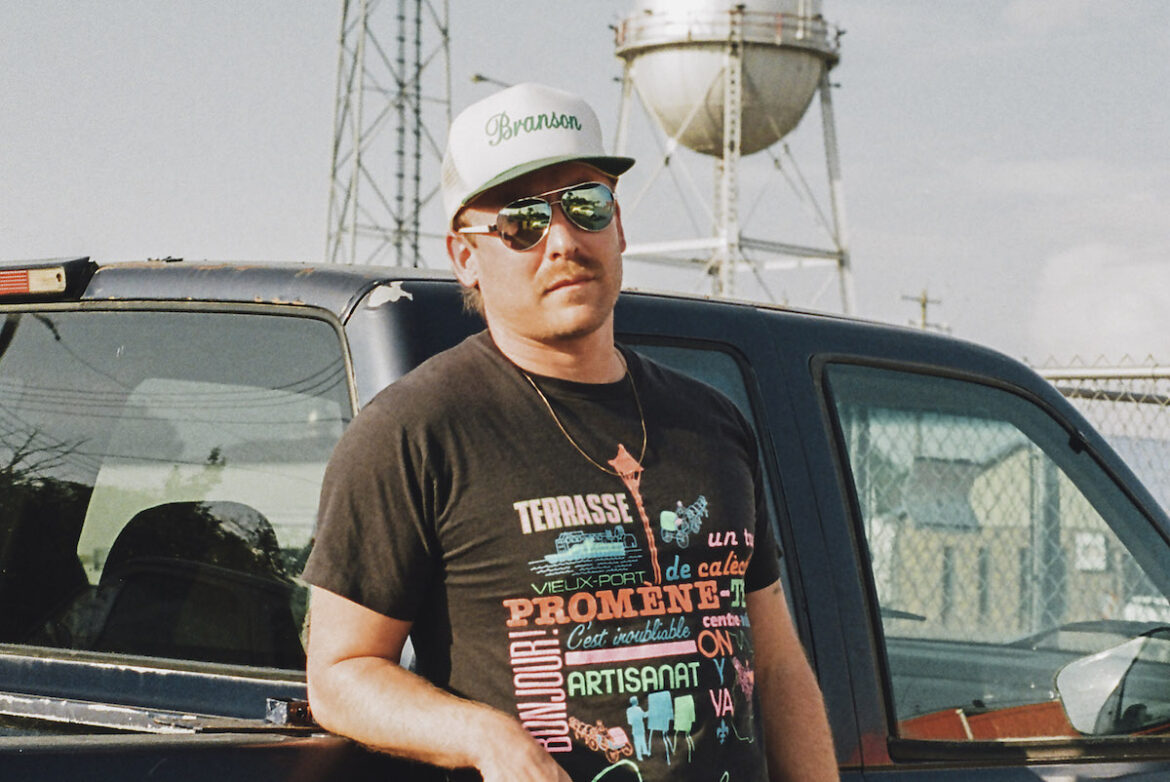
 © Heather Saitz
© Heather Saitz